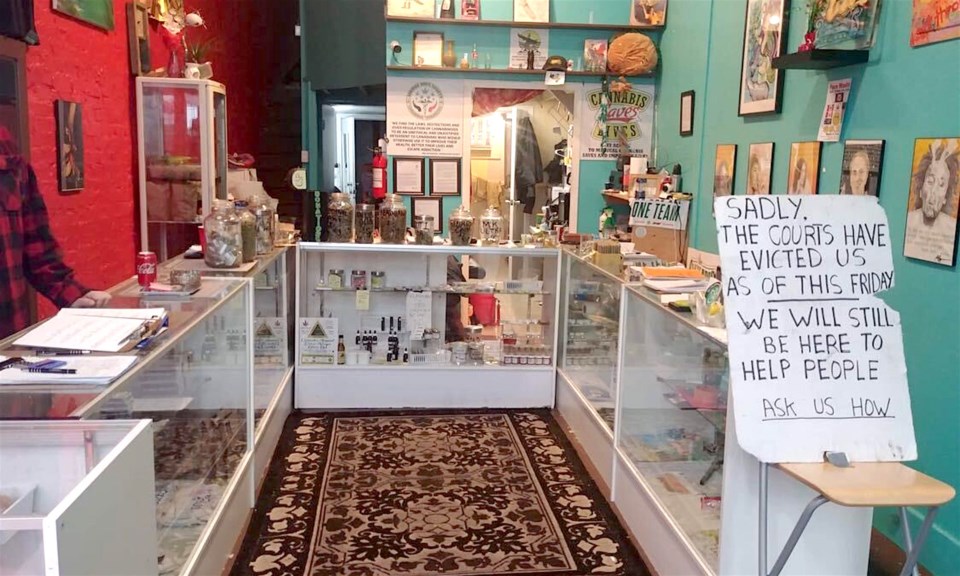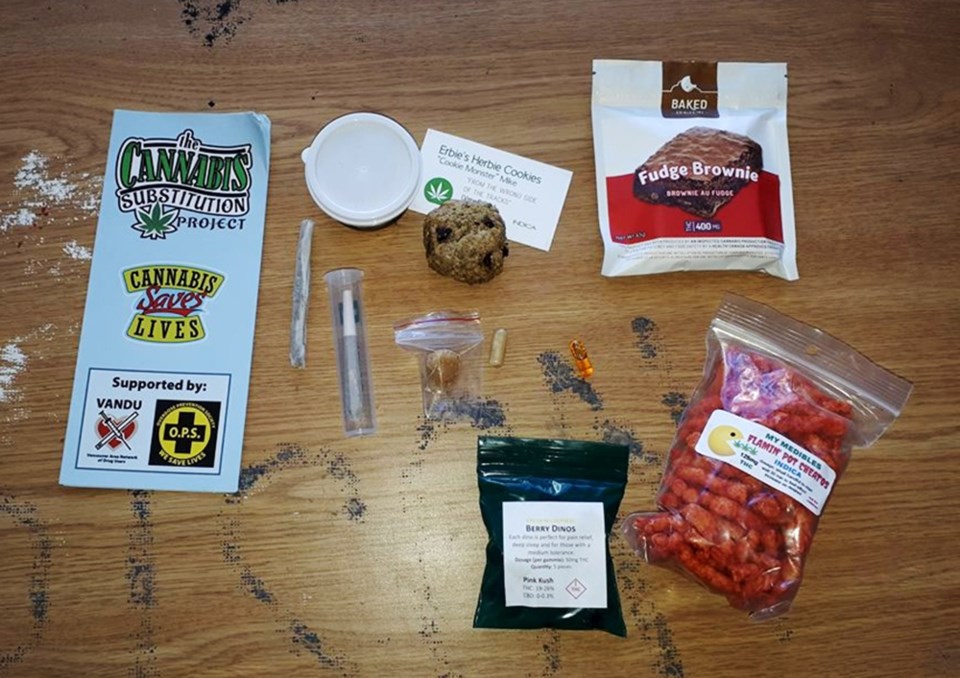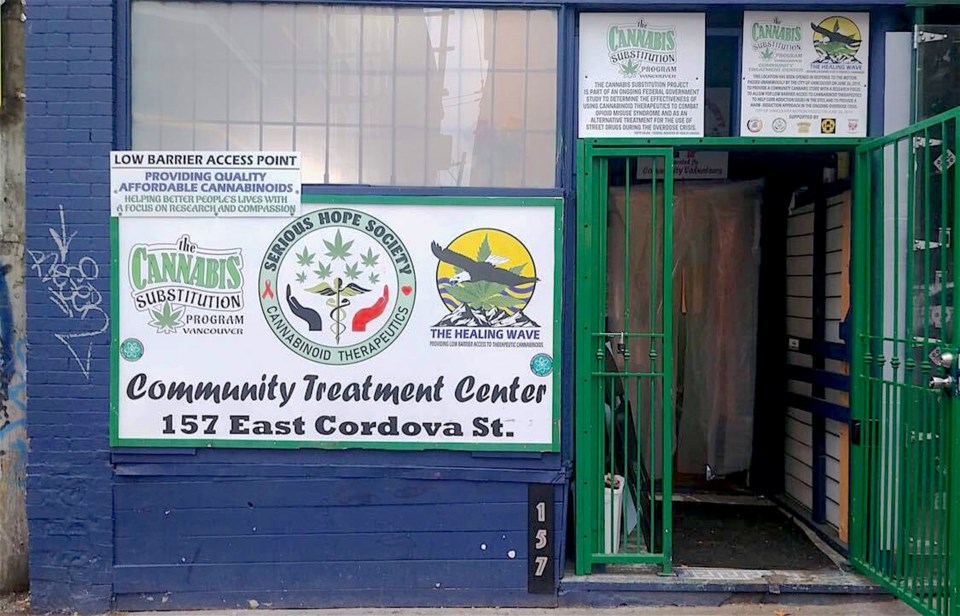Vancouver City council promised to consider making cannabis easier to come by for Downtown Eastside residents to help curb opiate use during a burgeoning overdose crisis.
Last summer, the mayor and council asked staff to devise feasible solutions.
This meant addressing cost and accessibility barriers – such as providing a sliding cost scale for residents and making allowances for legal cannabis shops closer to residents in the community.
Since marijuana was legalized nearly a year ago in Canada, the municipality reported even fewer stores in the DTES now sell the drug, according to city staff.
Only four cannabis retail stores have been permitted to operate. They are located within four blocks of the Main and Hastings street intersection.
For the past two years non-profit cannabis operation, The Healing Wave, has assisted the Serious Hope Society in a Cannabis Substitution Program serving DTES residents out of its 157 Cordova St. shop.
Program lead, Neil Magnuson – who first began the program out of the Vancouver Area Network of Drug Users (VANDU) years ago – is helping more than 253 people get below-the-market prices on cannabis, as an alternative to opioid use.
 The shop provides cannabis to 230 DTES residents who are part of a program to help reduce drug use.
The shop provides cannabis to 230 DTES residents who are part of a program to help reduce drug use.Non-profit DTES cannabis shop left out on the street
Earlier this month, Magnuson was asked by his landlord to leave the retail space – considering the shop was unlicensed to sell cannabis.
On Sept. 16 the non-profit sent a formal request to the federal government for a temporary exemption under the Cannabis Act to allow its sale of below-market cannabis in the DTES.
“The Serious Hope Society and Healing Wave are a non-profit retailer providing an essential harm reduction service during two separate public health emergencies," voiced Coun. Rebecca Bligh in a public letter of support Oct. 2.
"I am fully supportive that they receive this temporary exemption."
The appeal was to no avail. Magnusson and his team are to be evicted Friday, in ordinance with a B.C. Supreme Court ruling.
"We will not stop helping people. We cannot stop what we're doing here," Magnusson emphasized after the court decision.
"Cannabis needs to be easily accessible to people suffering from addictions. Cannabis high-dose edibles help people go through opiate withdrawal, or else they're trapped... at the prices the government is charging, most of them cannot afford the cost," he added.
"If we turn our backs on them, many of them will go back to the streets and die. They're good people just stuck in a bad situation."
Magnuson and The Healing Wave volunteers plan to set up an RV and continue to provide cannabis to DTES residents.
 A typical care package The Healing Wave gives to opioid users as part of its Cannabis Substitution Project.
A typical care package The Healing Wave gives to opioid users as part of its Cannabis Substitution Project.Cannabis an alternative to opiate use
British Columbia Centre on Substance Use (BCCSU) studies have confirmed that many people who use drugs also use cannabis, and this may reduce their exposure to fentanyl – a highly toxic recreational drug that is a driving force behind Vancouver’s overdose crisis.
More than 1,507 people in the city have lost their lives to overdoses since January 2016, the report noted. During the COVID-19 pandemic that number has increased significantly.
UBC researcher Dr. Milloy, with the BCCSU, has emphasized from his Vancouver research that cannabis use lowers the chances of a person using more toxic substances.
Milloy – who is in support of the Healing Wave – has also discovered that those who use cannabis as a form of harm-reduction are more likely to stay in medical treatment for opioid addictions.
However, the city said provincial limitations on pricing and operating models have stalled it from making any zoning amendments to increase the community’s overall access to affordable cannabis shops.
In that regard, “no changes are proposed to be brought forward at this time,” staff recommended.
Last month, Provincial Health Officer Dr. Bonnie Henry issued a public health order to increase the number of professionals authorized to help people at risk for overdose access safer alternatives to the toxic street drug supply.




